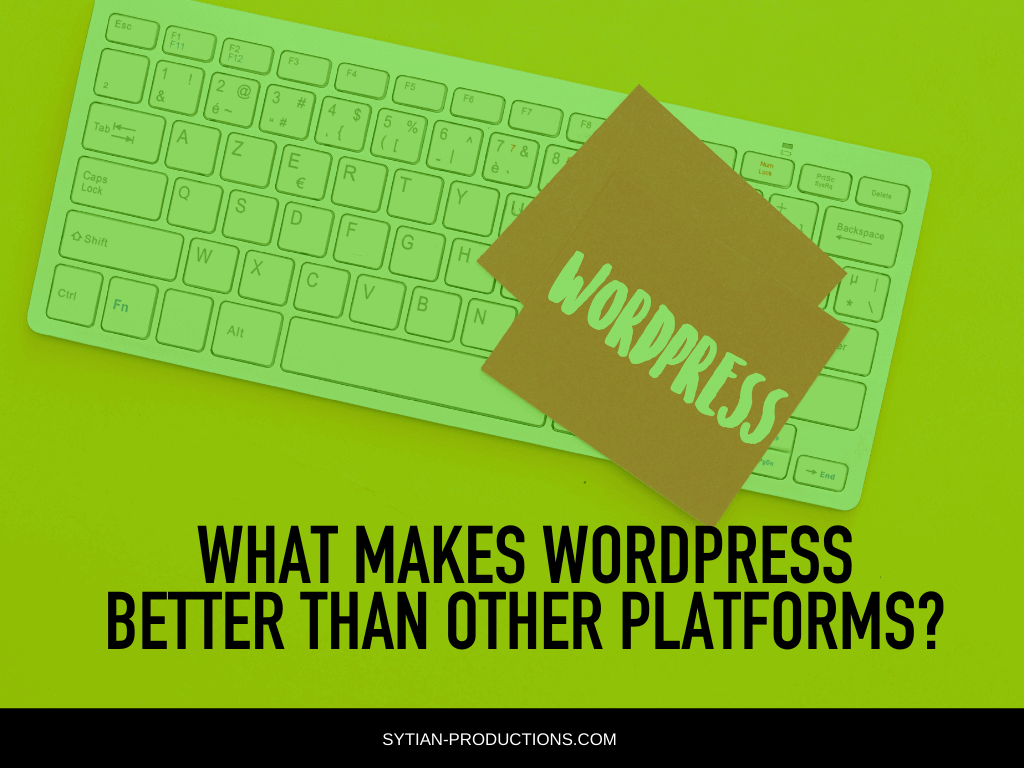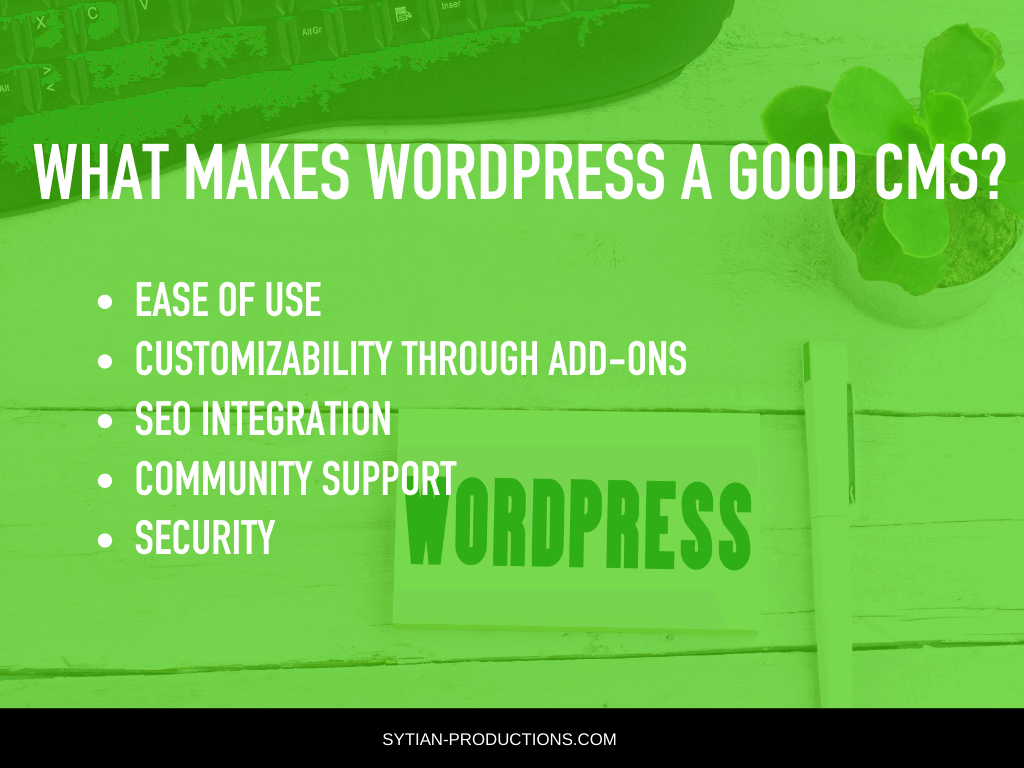What Makes WordPress Better Than Other Platforms?

As you’re starting to plan on creating your own website, you should ask one simple question when it comes to your choice of content management system:
Does it match your brand’s needs and resources?
If the endeavor involves employing a team of web developers, then an open-source CMS is a good choice. That means a CMS like WordPress, a versatile platform that lets you create any kind of website with it with great flexibility and functionality.
What makes WordPress better than most other CMS platforms for most purposes? Let’s take a look at what makes WordPress a good CMS and how it compares to the other alternatives.
What is WordPress?
WordPress is the most popular content management system in the world, powering over 20% of all websites on the Internet. It’s used by websites of all sizes, from small personal blogs to websites of large organizations. Even high-traffic websites like the Rolling Stones, MSNBC, and the government websites of Sweden are all powered by WordPress.
At first, WordPress was focused solely on blogging, but it has since become the most versatile CMS on the planet due to its expanding set of features and ever-growing plugins library. It has since become a full-scale CMS that can be used for a myriad of purposes and has a huge international community around it to provide ongoing support.
What Makes WordPress a Good CMS?

Many things make WordPress the most popular CMS on the Internet. First of all, it’s very easy to use. The installation process takes just five minutes or less, and it’s as easy as unzipping it and copying the files to the host. Some web hosting services even have automated WordPress installation, making the process even easier.
Ease of Use
Writing posts on WordPress should be easy for anyone familiar with word processing software like Microsoft Word. The WordPress editor has been getting constant improvements in both functionality and ease of use, so anyone can write blog posts right on the editor with ease.
Customizability Through Add-Ons
This is perhaps WordPress’ biggest strength. You’re able to change the look and feel of your WordPress website with thousands of themes available for use, which can also accommodate plugins and widgets to expand its functionality.
You can add plugins and widgets in order to turn a simple blog into a complex multi-functional website. A lot of those plugins and widgets in the library are free to use, and you can install and uninstall them as you please.
While custom themes, widgets, and plugins that do exactly what you want will require skilled WordPress developers who know JavaScript and PHP, the fact that WordPress allows for them makes for incredible flexibility you’ll be hard-pressed to find anywhere else.
SEO Integration
If you’re concerned about your website’s search engine optimization, WordPress actually helps you with your SEO through plugins that help optimize your content, analyze for keyword focus, and so on. Yoast SEO is a good example of such a plugin, known to be the best at giving a hint on how SEO-friendly your content is and tell you how to make it so.
Community Support
Since it’s so popular, you can get a lot of resources and support whenever you have a question or problem about WordPress. You can learn how to troubleshoot common problems, modify pages, install plugins, and so on easily. The answer is usually just a Google search away.
Security
By keeping WordPress and your installed plugins up to date, as well as having your website hosted by a reliable company with dependable customer support, you can be rest assured that your website can be safe and secure.
Drawbacks of WordPress
There’s no such thing as a perfect content management system, and that goes for WordPress as well. There’s a reason why there are still plenty of other CMS platforms out there like Joomla and Drupal that also have their share in the market.
For those sites that use the alternatives, that’s because WordPress doesn’t fulfill their specific needs. Here are the major reasons why:
Need for Coding Knowledge
As customizable and flexible as WordPress is, that flexibility can only be fully tapped through coding in HTML, CSS, PHP, and JavaScript. While that’s not necessary to be able to run a WordPress site, you do need coding knowledge if you really want to untap its full potential.
While there are plenty of templates and plugins available out there, they may not exactly be what you’re looking for. You see enough of them out there, they start looking the same, and you may want something different. The only true way to get exactly what you want is to make your own. If you’re not a web developer, you may have to find one who will do it for you.
Bloat
However, all those plugins can cause bloat, which then impacts site performance. The ease and convenience that plugins, widgets, and themes afford to WordPress users is indeed great, but there are so many of them out there that you may be tempted to install more than what you really need. Doing that can really bog down your site.
It’s important to always check if there are too many plugins and widgets running on your site in order to keep it running smoothly. The less plugins you have to install, the faster your website will load and the better it will serve users.
Security
While it has been mentioned that WordPress can be pretty secure due to its constant updates, its popularity and vast plugin library can also mean that it can have vulnerabilities.
Hackers are likely very familiar with WordPress due to its widespread use and open-source nature, so they would be studying its weak points, as well as that of common plugins.
Paradoxically, the best solution to patch up those holes is to install third-party security plugins, which can be effective at deterring those hackers from poking holes in your WordPress site.
Conclusion
Those are the reasons why WordPress has stood on top of the CMS world for so long. While there are plenty of other content management systems that you are free to use, it’s hard to go wrong with WordPress for most purposes.
Whether it’s just a personal blog or an enterprise-level website, WordPress is the ideal CMS for all sorts of websites. It’s user-friendly, incredibly flexible, extremely customizable, adaptable to various purposes, and supported by a huge global community full of helpful contributors.